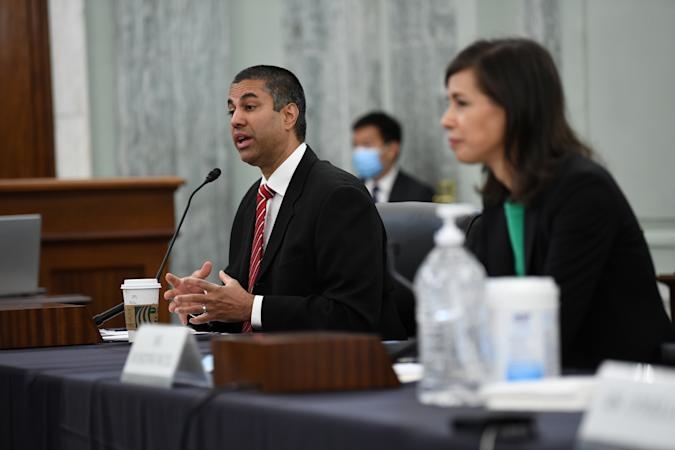NY AG report finds 18 million FCC net neutrality comments were fake
Out of a total of 22 million.


Before the Federal Communications Commission (FCC) voted to repeal net neutrality at the end of 2017, the agency collected public opinion on the policy. In all, it said it received nearly 22 million comments. Over the years, there’s been a fair amount of discussion surrounding where many of those came from, with a study from that same year suggesting that only six percent of the comments were unique.
Following years of investigation, the Office of New York State Attorney General Letitia James has published a report on exactly what happened in 2017. The investigation found the “largest” broadband companies funded a secret astroturfing campaign to push the FCC toward repealing net neutrality. At the time, AT&T, Comcast, T-Mobile, Sprint and Verizon (Engadget’s parent company) were in favor of repealing the policy. The industry hired several third-party firms to build public support for their decision. Ostensibly, those companies were supposed to convince people to support the broadband industry with incentives like gift cards and prizes. Instead, they simply submitted 8.5 million fake comments. The attorney general has fined three of the companies involved in sending in those comments $4.4 million.
On the other side, the FCC received another 9.3 million fake comments in support of maintaining net neutrality. According to the report, most of those came from a single college student, who was 19 at the time. They used automated software to generate the responses. All told, of the more than 22 million comments the FCC received on the matter, James says more than 18 million were fake. Put another way, more than 80 percent of the input the agency collected to inform its decision didn’t come from real people.
“The public record should be a place for honest dialogue, but today’s report demonstrates how the record informing the FCC’s net neutrality repeal was flooded with fraud,” Acting FCC Chairwoman Jessica Rosenworcel said in a statement to Engadget. “This was troubling at the time because even then the widespread problems with the record were apparent. We have to learn from these lessons and improve because the public deserves an open and fair opportunity to tell Washington what they think about the policies that affect their lives.”
Under former Chairman Ajit Pai, the FCC frequently fought any attempts to address the flawed net neutrality commenting process. At the start of the state’s investigation, former New York Attorney General Eric Schneiderman chided the agency for not helping his office investigate the matter. Even as recently as last year, the FCC fought handing over IP addresses that would verify the source of the comments.
Verizon owns Engadget’s parent company, Verizon Media. Rest assured, Verizon has no control over our coverage. Engadget remains editorially independent.
(13)